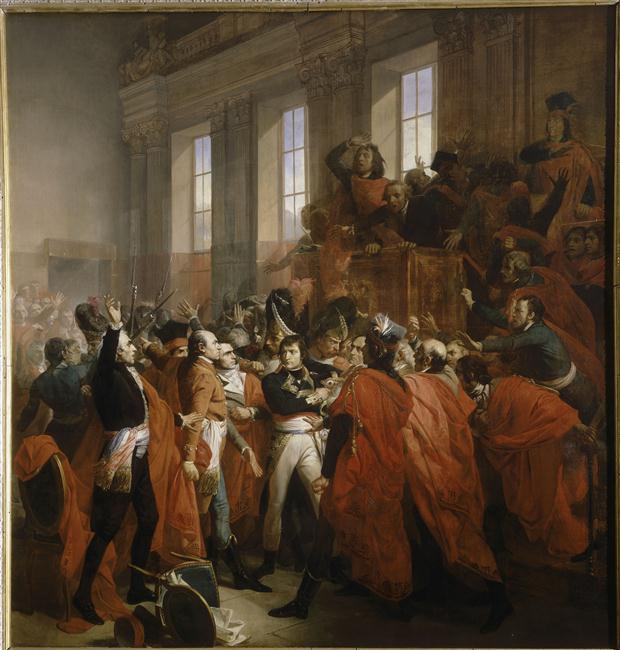Coup d’état, November 9-10, 1799
The coup d'état of 18–19 Brumaire (November 9–10, 1799) destroyed the Directory's form of governance in France and replaced it with the Consulate, paving the way for Napoleon Bonaparte's autocracy. The incident is frequently regarded as the end of the French Revolution.
In the waning days of the Directory, Abbé Sieyès and Talleyrand plotted the assassination with the help of General Napoleon Bonaparte, who had returned to France from the ill-fated Egyptian expedition to triumphant applause. On November 9, 1799, in Paris, the legislative Council of Ancients, led by Sieyès, voted to have both the Ancients and the lower house, the Council of Five Hundred, meet the next day in the palace at Saint-Cloud, ostensibly to protect the councils from a purported "Jacobin plot" in Paris, but in reality to put the councils in a convenient location away from the city and under the threat of Bonaparte's troops.
Bonaparte blundered through a speech before the Ancients the next day, 19 Brumaire, and was afterward confronted with a storm of insults in the meeting site of the Five Hundred, whose members, hearing tales and seeing troops all around, began to perceive the true conspiracy that was building. Bonaparte fled the hall, but Sieyès, Lucien Bonaparte, and Joachim Murat rallied the troops, dissolving the Five Hundred, and forcing the Ancients to decree the end of the Directory (and itself) and the establishment of a new consular government led by the First Consul Bonaparte and assisted by consuls Sieyès and Roger Duclos. Bonaparte had installed himself in the Luxembourg Palace by November 14th.
Dates: November 9-10, 1799














